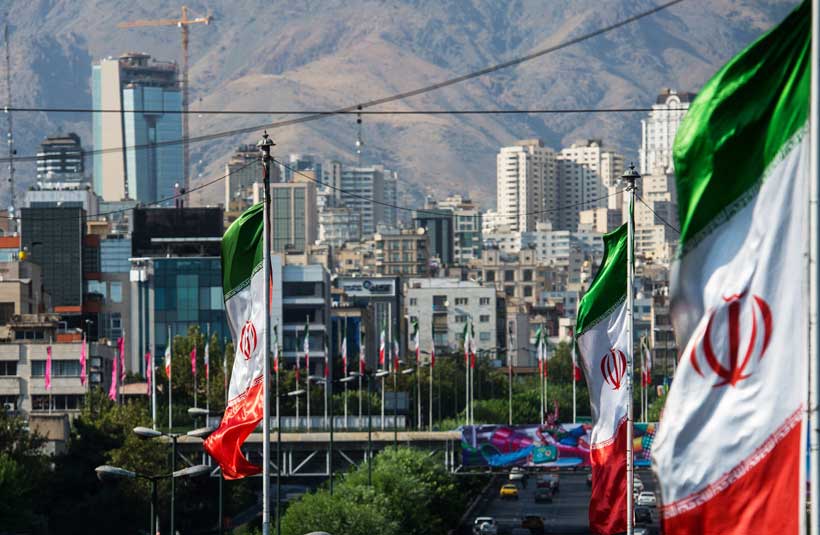The stage is set for Iran’s farcical presidential election to be held on 28 June. The vote has been brought forward from 2025 following the death of President Ebrahim Raisi in a helicopter crash last month. The ultimate head of the Iranian state is the unelected Supreme Leader Ayatollah Ali Khamenei. The President is the second-most powerful position and as such his role is primarily to implement decisions formulated and approved by Khamenei. The task of selecting the right person suitable for the post of President is made easy by the Guardian Council which oversees the election process and approves and rejects candidates as it thinks best. For this reason the system is regarded by critics of Iran as anything but democratic.
This time, six candidates have been approved to run for the presidency, their chief qualifications being that they are all ultimately supportive of and loyal to the Supreme Leader and the Iranian political system. The candidates were chosen by the Guardian Council from 80 registered hopefuls. Of the six candidates, five are considered hardliners and only one is from the reformist camp. Among those not allowed to contest is the firebrand populist and former President Mahmoud Ahmadinejad. The fact that no women have been approved as candidates shows the regime’s rigidity and anti-feminine character. This is only expected as the nation was in turmoil after its womenfolk protested against a brutal crackdown on them by the orthodox regime headed by the former President Ebrhim Raisi whose death in an air crash necessitated this election. Four women also registered to run, but were disqualified. This has been the case in every presidential election since the 1979 Islamic Revolution
Others, including the moderate former speaker of parliament, Ali Larijani, and Vahid Haghanian, a former commander in Iran’s Revolutionary Guard, were also barred from running.
The selection of candidates and the suitability of the most probable winner are guided by the national and international situations Iran is facing. The country has been already sucked into the vortex of war between Israel and Hamas as it has allegedly been helping the Houthis and Hezbollah launch attacks on Israel. Its own embassy in Syria has also faced missile attacks leading to several casualties. At the same time it is plagued by an economic crisis that is fuelling popular resentment in addition to the harsh treatment meted out to the country’s women unwilling to submit themselves to the dogmatic, orthodox and repressive regime.
In such a trying situation, Iran needs a leader who can be both hardline Islamist and skilled in running the administration in a manner acceptable to large swaths of the population. Judged from these angles Parliament Speaker Mohammed Bagher Qalibaf, a former Tehran mayor with close ties to the country’s paramilitary Revolutionary Guard, remains the most prominent candidate.
Other candidates include Saeed Jalili, former chief nuclear negotiator, Amir-Hossein Ghazizadeh Hashemi, the ultraconservative chairman of the Foundation of Martyrs and Veterans Affairs, Mostafa Pourmohammadi, Islamic scholar and a former interior and justice minister, and Alireza Zakani, the current mayor of Tehran. Only one reformist candidate, Massoud Pezeshkian, a lawmaker representing Tabriz in the Iranian parliament, appears to be the odd man out. But, critics point out he has been approved by the Guardian Council because he is near certain to lose the contest. His inclusion in the list is intended to provide the fig leaf that the Council is ready to accommodate moderate voices.
The composition of the Guardian Council leaves no one in doubt about what is expected of the election. It consists of 12 Islamic clerics and jurists, half of whom are elected by parliament and half of whom are appointed by Khamenei. It decides on the constitutionality of laws and the qualifications of candidates in elections. As a result, voters can only choose from a group of candidates loyal to the system.
The last presidential election, in 2021, saw the lowest-ever turnout, with only 48% of electors bothering to cast their vote. So the regime needs to look credible and to re-engage at least parts of the public. Reformists had threatened an election boycott if none of their candidates were allowed to run. However, the reformist movement in Iran is too weak politically to pose any challenge to the religious regime and the outcome is known as that will reflect what the Supreme Leader wants.
